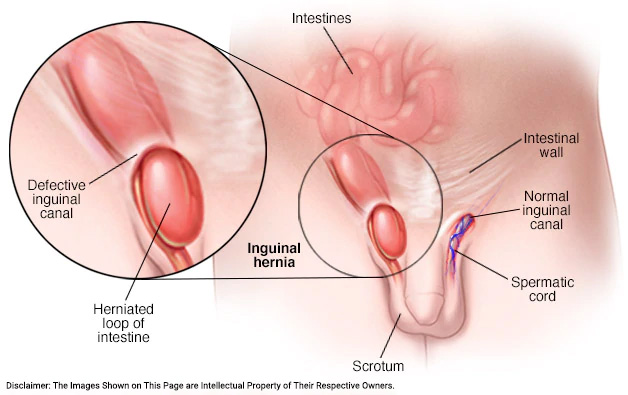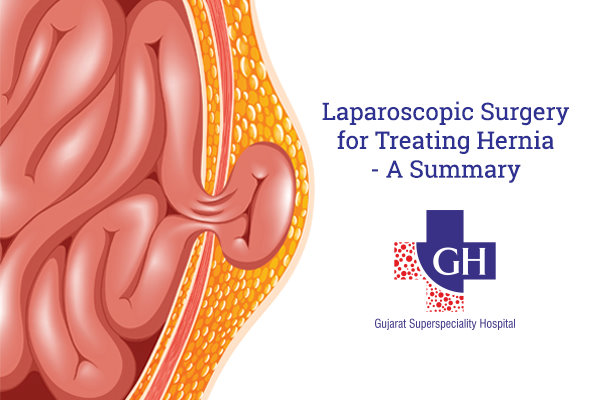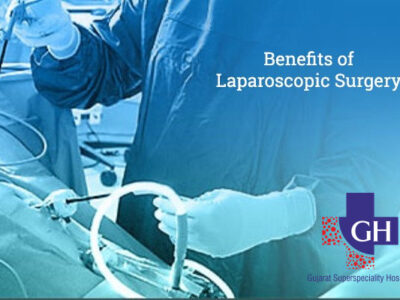What is Hernia?
A person is diagnosed with Hernia when he/she develops a hole in the peritoneum, which is the muscular wall keeping all the abdominal organs in their right place. The organ/fatty tissue pushes through an area where the muscle is weak. This frail muscle/tissue is clinically known as fascia. When hernia happens, the organs and tissues move forward, thus creating a lump. The lump is not omnipresent…It goes away when the person lies down flat or in some cases, it can be pushed back inside also. The affected person undergoes a lot of pain and uneasiness due to this medical condition. If you or any loved one is suffering from hernia, then do make a visit to the hernia clinic at Gujarat Kidney & Super speciality Hospital to receive treatment from a top-class team of highly experienced medical professionals. For more visit: www.gujaratsuperspecialityhospital.com/specialities/what-is-a-hernia

What causes Hernia?
There is no specific reason as to why Hernia occurs. It mainly affects men when compared to women and mainly happens because of extra pressure on the walls of the abdomen. This increased pressure is attributed to factors like long-term constipation, continuous cough, overgrown prostrate, abdominal fluid, being overweight, peritoneal dialysis, long-term smoking, undescended testicles, among others.
Different Types of Hernia
The hernia cases are classified on the basis of the areas where they develop. The most common types of hernia are
- Inguinal Hernia: This hernia develops in the inner groin where the bladder pushes through the abdominal wall or in the inguinal canal.
- Femoral Hernia: This type of hernia occurs at the outer groin when the intestine moves into the canal conveying the femoral artery into the upper thigh area.
- Incisional Hernia: This hernia can occur due to an incision at the spot where the person may have earlier had a surgery.
- Umbilical Hernia: People can develop this type of hernia near the belly button, where the small intestine makes its way through the naval wall.
- Hiatal Hernia: Occurs in the upper area of the stomach when the latter moves through a hole in the diaphragm called the hiatus. Thus, the name, hiatal hernia.
Treating Hernia- Different Options
Patients seeking treatment for hernia at hospitals like the Gujarat Kidney and Super speciality Hospital have many options to choose from. They are as follows:
- Open hernia repair surgery
- Laparoscopic invasive surgery and finally
- Robotic surgery.
This blog takes an in-depth look at the laparoscopic surgery procedure and the facilities at Gujarat Kidney Hospital’s hernia clinic.
Read more: All What You Need to Know About Hernia: Symptoms, Types And Treatments
Laparoscopic Surgery- An Overview
In laparoscopic surgery for hernia, doctors make use of a laparoscope, which is inserted into the patient’s body by making a small hole at the belly button. This type of surgery is performed under the influence of general anaesthesia and it is guaranteed that the patient will not feel any pain. All patients should undergo a complete health check-up before going for the laparoscopic hernia surgery.
In the laparoscopy procedure, the laparoscope gives the complete view of the body on screens installed in the operating room with the help of an attached camera. During the surgery, the patient’s stomach is inflated with the help of carbon dioxide gas, which helps the surgeon to view your internals completely. Next, cuts are made to the inner lining of the abdomen or peritoneum and mesh is placed to clean the holes in the abdomen and build up the tissue. In this manner, the hernia is successfully cured without any major surgery.
Once the procedure is complete, the small cuts made on the abdomen are stitched or closed with surgical tape. With the passage of time, the cut marks will become invisible. In Vadodara, the name to trust for Laparoscopic Surgery for Hernia is Gujarat Kidney and Superspeciality Hospital. The hospital has a separate dedicated hernia clinic with all the required structure and equipment needed to offer fast and efficient treatment to hernia patients. Expert health care professionals will help you all the way through the treatment process like diet, lifestyle changes and efficient over-the-counter medications to recover as fast as possible.


